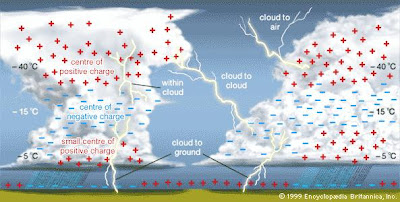Electric Charge from Britannica.com
electric charge, basic property of matter carried by some elementary particles. Electric charge, which can be positive or negative, occurs in discrete natural units and is neither created nor destroyed.
Read more on Britannica.com...
Read more on Britannica.com...
Electric Charge from Wikipedia
Electric charge is a physical property of matter which causes it to experience a force when near other electrically charged matter. Electric charge comes in two types, called positive and negative. Two positively charged substances, or objects, experience a mutual repulsive force, as do two negatively charged objects. Positively charged objects and negatively charged objects experience an attractive force. The SI unit of electric charge is the coulomb (C), although in electrical engineering it is also common to use the ampere-hour (Ah). The study of how charged substances interact is classical electrodynamics, which is accurate insofar as quantum effects can be ignored.
Read more on Wikipedia...
Electric Charges from School of Champions
Read more on School of Champions...
Electric Charge from phy-astr.gsu.edu
Read more on Wikipedia...
Electric Charges from School of Champions
One property of matter is the electric charge. Most sub-atomic particles have either a positive (+) or negative (−) electrical charge. Those that don't are considered neutral.
Read more on School of Champions...
Electric Charge from phy-astr.gsu.edu
The unit of electric charge is the Coulomb (abbreviated C). Ordinary matter is made up of atoms which have positively charged nuclei and negatively charged electrons surrounding them. Charge is quantized as a multiple of the electron or proton charge:
 Read more on phy-astr.gsu.edu
Read more on phy-astr.gsu.edu
 Read more on phy-astr.gsu.edu
Read more on phy-astr.gsu.edu
No comments:
Post a Comment